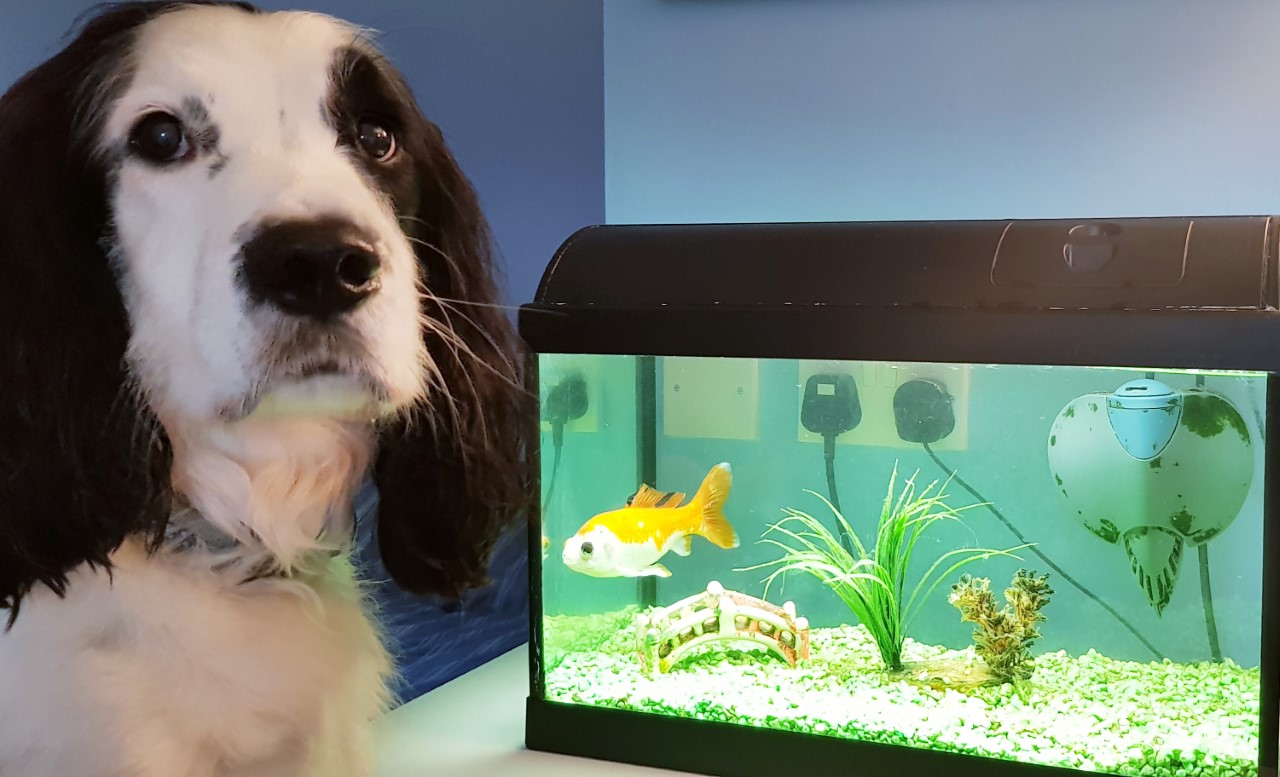Behind the scenes of Inclusive Learning
Karen Dorward is a Student Support Assistant at Ayrshire College. Here, she shares the unexpected benefits that have come out of blended learning over the last 10 months, from an Inclusive Learning perspective.

’It’s life Jim, but not as we know it’ - Apparently, Dr Spock didn’t actually say these words in any Star Trek episode, nevertheless, it nicely sums up the past year which has been about as surreal as any sci-fi movie. The Covid 19 pandemic has touched every aspect of our lives, with Ayrshire College being no exception.
The onset of a new academic year for students and staff usually brings with it a wave of great excitement, nerves, uncertainty, and stress in equal measures. However, 2020-2021 brought little excitement – mainly just the latter. Online working and learning replaced the hustle and bustle of college life and, apart from limited on-campus activity, our homes became our new workplace.
When I returned to work (aka my kitchen) last October, I had a new timetable of students to support and absolutely no idea how it would work. My 2 new colleagues, Alfie and Buster are lovely, but when it comes to figuring out IT, a spaniel and goldfish are not the best.

I had never used Microsoft Teams to support students; I didn’t know how to send a Teams invite, get in or out of a Breakout Room (what was that anyway?), share a document - let alone know how to customise video settings to look like I was joining from a beach in Hawaii! We were all thrown into the deep end together - sink or swim.
As a Student Support Assistant with Inclusive Learning, I work with students who have a wide range of educational support needs, across all curriculum areas and at all levels. Students can be supported both in and outwith class on a 1-1 or group basis, as well as during assessments/exams.
This support can include note-taking (electronic or handwritten), prompting (keeping the student focused and on task), practical support, breaking down complex information, proof reading, scribing, study skills sessions as well as training on assistive technology. How was this all going to work online?
There’s no doubt it was tough at the start (and still can be), dealing with blips, poor connectivity and the occasional Teams total wipe-out. Learning how to navigate new online learning platforms such as Teams, Zoom, and accessing college databases was daunting enough (even Moodle had changed!) but more importantly, keeping the students focused and positive in a world of total uncertainty has been a tremendous challenge. Their well-being is a priority, and my first question is always, ‘’How are you and how are you coping?’’ Never before has this been so important and sincere. With a combination of mutual support from students and colleagues, trial and error, and even YouTube tutorials, we managed to get to grips with online learning/support and to my surprise, discovered many unexpected positives along the way. It wasn’t all doom and gloom.
Online 1-1 support sessions have been, overall, very effective and efficient. From a student’s perspective, given that 1-1 sessions are often timetabled on their day off, using Teams means that they can save valuable time and money by not having to travel into college. A positive from a support perspective is that I am more flexible and can support students across all 3 campuses at any time during the course of a day/week.
Most 1-1 sessions used to take place in the busy, often noisy, and distracting environment of the Learning Resource Centre. By using Teams, students are less distracted and can speak more freely and confidently knowing that others cannot see or overhear them. This is particularly beneficial for those who have Autistic Spectrum Disorder (ASD) and/or Attention Deficit Disorder (ADD). Many students feel uncomfortable with others knowing that they receive additional support; by using Teams, this stigma is completely removed.
Students are relaxed in the comfort of their own home and we can have a giggle when dogs or cats appear on camera or when canaries start singing in the background (very confusing for my dog!) as well as family members making the occasional appearance - not to mention the endless postal deliveries pre-Xmas!

We can still do all the things we could do before; share documents and access coursework. I can still take over typing if a student needs me to scribe, and one of my students even has a webcam linked up so I can still proof-read hand-written work. I can still sense when a student is looking or sounding tired or if something is troubling them and when it is time for a break. Sometimes the student doesn’t want to use the video function, and that’s fine too. We can still have a blether, whether its sharing good or bad news, what they have been up to over the week, if they have passed or failed an assessment – the usual chat. We have just learned to adapt.
As an electronic notetaker, I have also found online lectures via Teams extremely effective. Again, I can anonymously support any number of students, and can focus purely on the lecture without distraction. I can still support the student during feedback sessions, group work etc using Breakout Rooms. More time is freed up to email lecture notes to students directly after each class, fill out case notes, carry out research and preparation for 1-1s, training or other admin tasks – time that would otherwise be taken up travelling between classes or campuses.
The Teams chat and call functions make it so easy to communicate directly with students and I have found that they have been far more responsive to this than college emails. It’s also a bonus to be able to see that they have read my messages. Never before have emojis been so important – even if the student doesn’t respond in words, a wee smile or thumbs up just to know they are ok is good enough for me. In fact, the way the students have coped this year has truly amazed and inspired me.
Inspirational students
One student, who has severe life limiting physical disabilities, won’t let anything get in his way – let alone a global pandemic. He really misses the human contact of college life (as we all do) but is just getting on with his online studies, using technology to his best advantage and still looking towards the future – a job or university – and I have no doubt that he will succeed.
Another, who also has a severe physical disability and ASD, has had many ups and downs but this period of online learning has focused his mind on what he wants out of life and he has applied to university with great plans for the future. He feels that he is becoming more independent with his learning and enjoys the accessibility of Teams.
Similarly, another student, who was very dependent on support last year, is independently accessing MyLearning and communicating with lecturers more often – he is already planning what he would like to study next year. An HND student has also shown tremendous strength of character. Despite struggling with severe dyslexia throughout her life, she has overcome many barriers to learning and has embraced assistive technology, Inclusive Learning support and has now applied to University. She is looking forward to her next steps in education and an exciting career in her chosen field.
Life skills
This period of online learning I believe, despite its challenges, is helping students gain many important life/work skills – and not just technological; adaptability, patience, communication, humour, optimism, setting goals and daily routines, staying connected and asking for support when needed, as well as learning to deal with difficult and challenging situations. They might not realise it, but each week these skills are building up their resilience which, in turn, will help them to cope with the road ahead – however bumpy it may be.
’’Nothing goes to waste on the journey of life. Both good and bad experiences shape your mind and heart for what is to come’’ Leon Brown